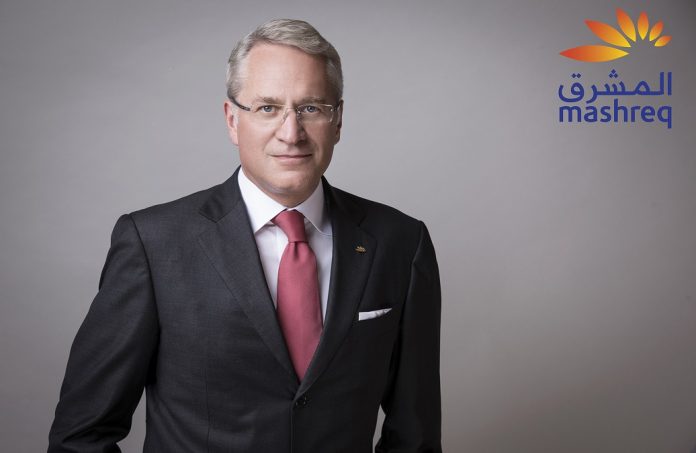
A new report from a high-level hospitality industry think tank has recommended 15 actions needed to help the UAE’s hotel industry survive the impact of the Covid-19 pandemic.
Launched today by the UAE Hospitality Think Tank, “The Way Ahead for Hospitality” report calls for additional steps from authorities and financial institutions to support hoteliers through the crisis, and it recommends several reforms including greater flexibility in employment regulations and zoning.
The UAE Hospitality Think Tank is a focus group comprising leading industry players from across the UAE hospitality sector brought together by Mashreq Bank and MEED. Its purpose is to assess the challenges in the UAE hospitality industry brought about by Covid-19 and to recommend actions to overcome them.
The report sets out 15 recommended actions needed in the UAE to support the country’s hotels and to create a more resilient sector that is better able to withstand future shocks. Even as customers return as lockdown measures ease, the inevitable fall in hotel occupancy and capacity in food and beverage facilities due to safety and social distancing measures will hit revenues.
The report acknowledges that while government authorities were quick to act in providing support to hoteliers as the effects of the pandemic progressed, further support is needed to facilitate recovery. The white paper addresses five key concerns facing hotel owners and operators, and makes recommendations for potential actions to overcome them.
The recommendations cover both the immediate need of boosting an industry impacted by the current crisis and the longer-term objective of building resilience through increased collaboration and efficiency.
The paper highlights the permanent shift in the way business is done and calls for collaborative action from government authorities, operators, banks and investors to sustain the hospitality industry and position it for future growth.
Joel Van Dusen, Head of Corporate and Investment Banking Group at Mashreq Bank, said: “The regional hospitality sector already faces multiple headwinds, and the pandemic has only further impacted the industry with factors such as the global economic environment, low oil prices, struggling tourist numbers and oversupply. Despite this, there are numerous opportunities which can be leveraged to make the industry a more sustainable proposition for the foreseeable future. This report presents insights and recommendations that act as a stimuli for the industry to come together and rethink the existing model. Only by creating a permanent shift in the way business is done, will the Hospitality Industry be able to create a strong momentum during the medium term.”
Richard Thompson, MEED’s Editorial Director, added, “The status the UAE enjoys as a leading tourism and leisure destination can be attributed in part to the best-in-class offerings delivered by the hospitality sector. In these unprecedented times, we have a shared responsibility of ensuring that the sector continues to stay afloat and thrive. In this report, the UAE Hospitality Think Tank lays out clear and insightful recommendations that can pave the way forward for the hospitality industry to once again flourish.”
Key recommendations from the report:
Crisis support
Assistance from the Government as well as financial institutions is critical to supporting the sector in the long-term. According to the report, the charges for financing can be quite expensive for hotels, damaging their short-term survival prospects. Banks must therefore provide flexibility on key terms for facilities. Due to a low occupancy, utility fees should also be waived, at least until the end of 2020, and there should be discounts for district cooling charges.
The Think Tank also recommends that the Government provide a 25 to 50 per cent subsidy for staff accommodation costs and employment permits, as well as waive visa charges as a result of the high, ongoing accommodation and food costs associated with staff who are unable to return home. Taxes, including municipality and VAT should also be temporarily waived, and non-essential security enhancements should also be suspended.
Collaboration
To enhance collaboration, the UAE Hospitality Think Tank suggests establishing an official industry body to provide a forum, as well as a unified voice for the benefit of the hospitality sector. In the long-term, this will help to encourage greater collaboration amongst players and ensure that an entity works on behalf of all hoteliers in the UAE.
Sustainability
The report further recommends the introduction of a national and/or emirate-level hotel development strategy that will manage the supply of hotels and other hospitality assets in a holistic way, while ensuring appropriate assets are available to meet future needs.
Efficiency
Another challenge is the rise of multiple empty units in hotels due to low demand and social distancing measures. Hotels are struggling to find alternative uses for these spaces due to zoning restrictions. This necessitates a re-examination of zoning, and the report recommends introducing legislation that enables a more flexible use of space, such as combined residential and business units or multi-purpose conference facilities.
Safety
The white paper also strongly recommends creating legislation that requires hoteliers to establish a ‘rainy day fund’ or mandatory employment insurance to ensure the welfare of staff in the event of an emergency. Additionally, a mechanism that enables the sharing of investment costs of new technology should also be developed, so that health and safety standards are improved across the sector.
Launched by Mashreq Bank and MEED, the UAE Hospitality Think Tank brings together industry leaders representing hoteliers, real estate companies, professional organizations and consultancy firms to recommend solutions aimed at achieving sustainable growth in the hospitality sector.



































